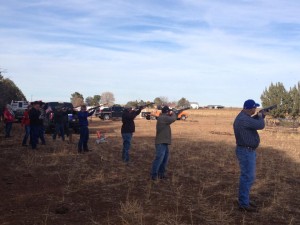*This article is not a substitute for the advice of an attorney.*
A North Carolina judge will soon decide whether a shooting range is considered “agri-tourism” under state law. The impact of this decision will determine whether the shooting range is subject to local zoning laws, but could have further impact on what activities are classified as “agri-tourism” under the law.
Background
Under a series of state statutes, North Carolina allows for “agri-tourism” to occur on farms and ranches throughout the state without obtaining county zoning approval. The statute, however, did not list specifically what activities are permitted to fall within this protection. Under the North Carolina law, agri-tourism is defined as, “any activity carried out on a farm or ranch that allows members of the general public, for recreational, entertainment, or educational purposes, to view or enjoy rural activities, including farming, ranching, historic, cultural, harvest-your-own activities, or natural activities and attractions.”
In this case, a dispute has arisen over whether a shooting range falls within the statutory protections.
Currently, a majority of states have passed some form of agri-tourism statute addressing a variety of issues including zoning, liability, and tax concerns. Texas, however, has not passed this type of statute. [To review a list of state agri-tourism statutes, click here.]
The Dispute
The current dispute involves a a 12-acre shooting range in rural North Carolina. Soon thereafter, neighbors of the range complained of noise from the frequent gunshots and have had stray bullets hit their homes.
Counsel for the shooting range argues that the agri-tourism statute was created “to provide an opportunity for farmers to generate additional revenue by inviting people to participate in traditional activities.” He argues that hunting and shooting are traditional farm activities and should not be subjected to county zoning requirements. The neighbors, conversely, argue that the shooting range is not related to agriculture and, therefore, should be governed by the zoning regulations applicable to all other shooting ranges in the state.
Why Does This Matter?
Although Texas does not have a similar agri-tourism statute and, regardless, any decision from North Carolina would not be binding on a Texas court, this case raises for consideration various disputes that may arise as landowners seek alternative sources of income by expanding farm operations to include additional activities for the public.
As farmers and ranchers diversify their operations, oftentimes this includes diversifying away from traditional farming and ranching and branching out into various activities such as hayrides, pumpkin patches, wineries, corn mazes, and even shooting ranges. Without question, when farm activities are expanded beyond those traditionally expected, there is a high likelihood of controversy. You have read before about a farm in Tennessee that hosted music concerts to increase farm revenue and caused a controversy with neighbors.
It is important for rural landowners to consider these types of controversies, especially before they make changes to their existing land to expand their operations. Landowners should certainly consult with an attorney and an accountant before taking these types of actions. Additionally, sitting down with neighbors and discussing plans and seeking to find common ground can go a long way in avoiding a major dispute down the road.
You Be the Judge
If you were on the bench in North Carolina, what would your conclusion be? Does the shooting range fall within the statutory protections?












